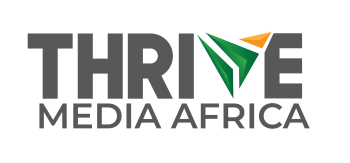In today’s digital landscape, a well-crafted digital marketing strategy is essential for businesses aiming to thrive and achieve their goals. A successful digital marketing strategy involves a thoughtful and cohesive approach that integrates various components to drive brand awareness, engage target audiences, and generate meaningful results. This article will explore the critical components of a successful digital marketing strategy and how they work together to deliver impactful outcomes.
Clear and Measurable Goals:
Every successful digital marketing strategy begins with clearly defined and measurable goals. These goals should align with your overall business objectives and be specific, measurable, attainable, relevant, and time-bound (SMART). Whether it’s increasing website traffic, boosting brand awareness, generating leads, or driving sales, establishing clear goals provides a framework for your marketing efforts.
Comprehensive Target Audience Analysis:
Understanding your target audience is vital for crafting effective marketing messages and reaching the right people. Conduct thorough research to identify your ideal customer profiles (ICPs) and create buyer personas encompassing their demographics, interests, pain points, and online behaviors. This information will inform your content creation, channel selection, and messaging to resonate with and engage your target audience.
Solid Brand Identity and Positioning:
Strong brand identity and positioning set the foundation for all marketing activities. Clearly define your brand’s unique selling proposition (USP), values, personality, and voice. Consistently convey your brand’s identity across all digital channels, including your website, social media profiles, content, and visual elements. A well-established brand identity helps differentiate your business from competitors and builds trust with your audience.
Engaging Content Strategy:
Content lies at the heart of digital marketing success. Develop a comprehensive content strategy that aligns with your target audience’s needs and preferences. Create high-quality, relevant, and valuable content in various formats such as blog posts, videos, infographics, podcasts, or interactive experiences. Your content should educate, entertain, or inspire your audience, establishing your brand as a trusted resource in your industry.
Multi-Channel Approach:
To reach and engage your target audience effectively, leverage multiple digital channels. Determine which channels align with your audience’s preferences and behaviors, such as search engines, social media platforms, email marketing, content distribution platforms, and online communities. Implement a cohesive and integrated approach across these channels, ensuring consistent messaging and branding to create a seamless user experience.
Search Engine Optimization (SEO):
Optimizing your website and content for search engines is crucial for organic visibility and attracting targeted traffic. Conduct keyword research to identify relevant search terms and incorporate them strategically into your website copy, meta tags, headings, and URLs. Focus on creating high-quality, user-friendly content that answers searchers’ queries and fulfills their needs.
Data-Driven Decision-Making:
Data is a powerful asset in digital marketing. Leverage analytics tools to collect and analyze data on website traffic, user behavior, conversions, and campaign performance. Use these insights to make data-driven decisions, identify opportunities for improvement, and optimize your marketing strategies accordingly. Regularly monitor key performance indicators (KPIs) to track progress toward your goals and adjust your approach as needed.
Continuous Testing and Optimization:
Digital marketing is an ever-evolving landscape, and successful strategies require continuous testing and optimization. Experiment with different approaches, such as A/B testing, to refine your messaging, design, calls-to-action (CTAs), and user experience. Continuously optimize your campaigns, channels, and content based on data insights to improve performance and achieve better results.
Conclusion:
A successful digital marketing strategy encompasses several key components working in harmony. From setting clear goals and understanding your target audience to craft engaging content, utilizing multiple channels, optimizing for search



